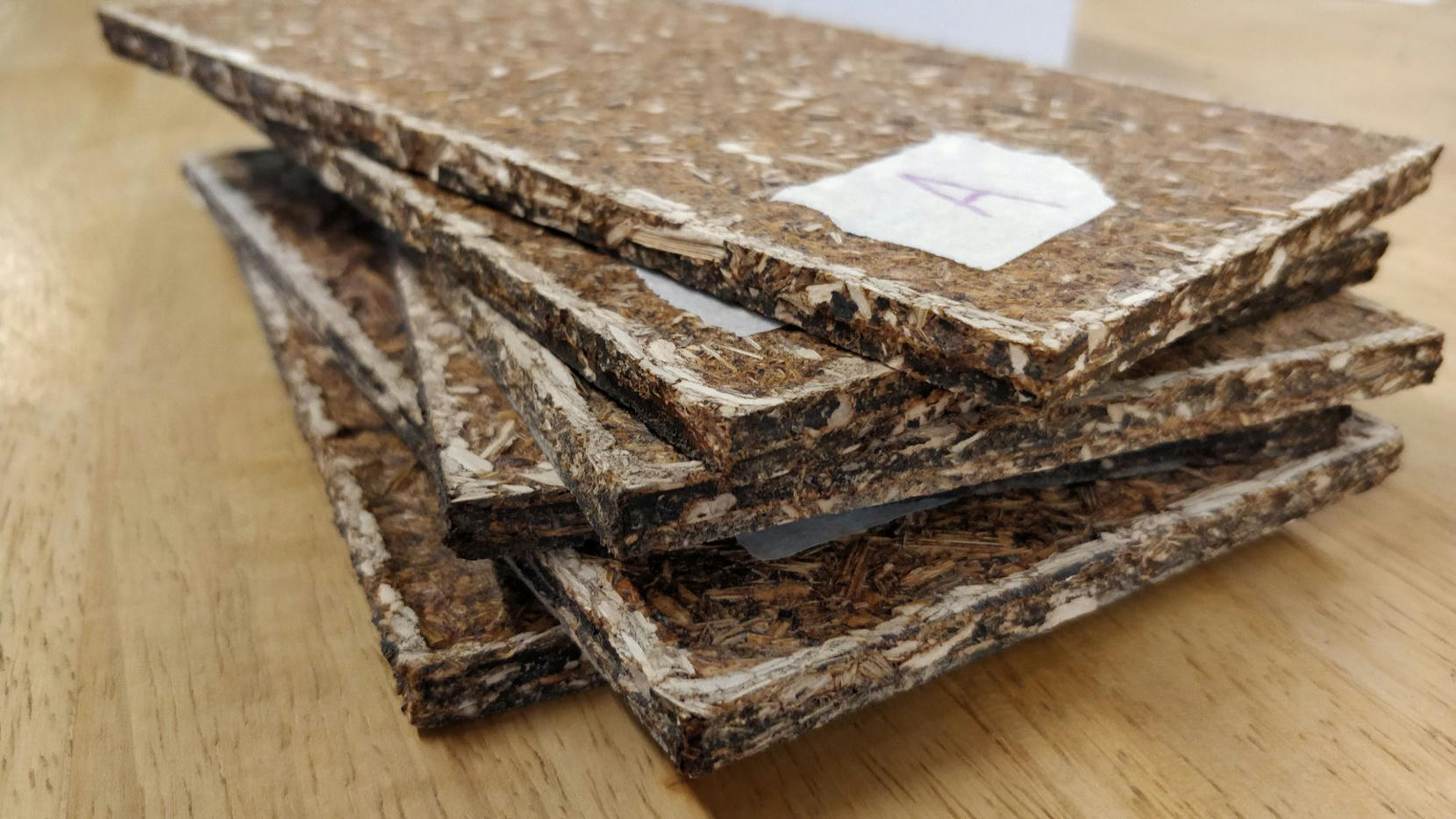SUMMERCAMP : Design sprint knotfactory

Challenge : Develop new short life cycle products with biodegradable composite material.
Japanese Knotweed is an exotic plant that invades and disturbs biodiversity. Human activity and travel introduced and distributed the plant. This bio-based material could be an interesting source that is available in many countries in the world which gives us a wide range for open R&D. We stress we do not intend to spread the plant or cultivate it, but we see the plant as a metaphor for a systemic change in production chains to circular flows in order to make viable products based on (bio) waste streams. This species is at the same time a placeholder for an intercultural debate on colonialism and the antropocene.
For the local localisation, check the accurate mapping here.
The world of bio-composites is diverse and fast growing. The combination of fibers and binding material (glue), the quality of the harvest, and length and orientation of the fiber characterize the quality of a composite. We press the material into plates or any 3D shape. The Knotfactory set up a lab for production of bio-composite products to develop prototypes for productions in different ‘knots’. We set these production units up in a network of social economy partners.
The material is biodegradable. In the search for short life cycle products, the biodegradability should be a function and not an end of cycle solution.
e.g. not biodegradable shoes or shirts but biodegradable peat pots of alternatives for ribbons for horticulture applications.
Products based on locally mined resources or waste streams for a local market are utterly contextual. Therefore, products and production processes should be able to adjust to a hyper local context.
Knotfactory products are open-ended design. In order to call a product a knotfactory product, we must meet the following required open design principles.
Our Open Ended Design principles
product
- biodegradable
- bio based waste streams
- mined in not cultivated environments
Production process
- minimal energy use
- not complex and modular
- low budget
- avoid emissions (water air) and toxic waste
Value
- relative characteristics
- open knowledge
Expected outcome
- prototype of a workable product for the knotfactory lab setting
- optimisation of the recipe based on value network information
- optimisation of the production process
Who
We organize this summercamp for students and pioneers in design, engineering and sustainability. Our strength is to build a network and support acceleration of the design process, so we invite people who want to work in an open and collaborative way.
What we offer
- 10 days of use of all Timelab’s infrastructure, including a full equipped makerspace and the knotfactory lab
- Food and care
- access to all the knowledge and testing results done in previous sprints
- access to our 10 headed advisory group with engineers, biologists, CE experts and sustainable designers (check the list of people here)
- a presentation of your work at the end of the week to a head hunted group of people in the field
- acknowledgement of your contribution and access to the follow-up phases of the project
We don't charge a registration fee, because we believe learning is priceless. We do ask you to commit to the whole 10 days and actively take part in individual and group work. We charge a no show fee for cancelation without notice.
check out this video Ugent students made last year!